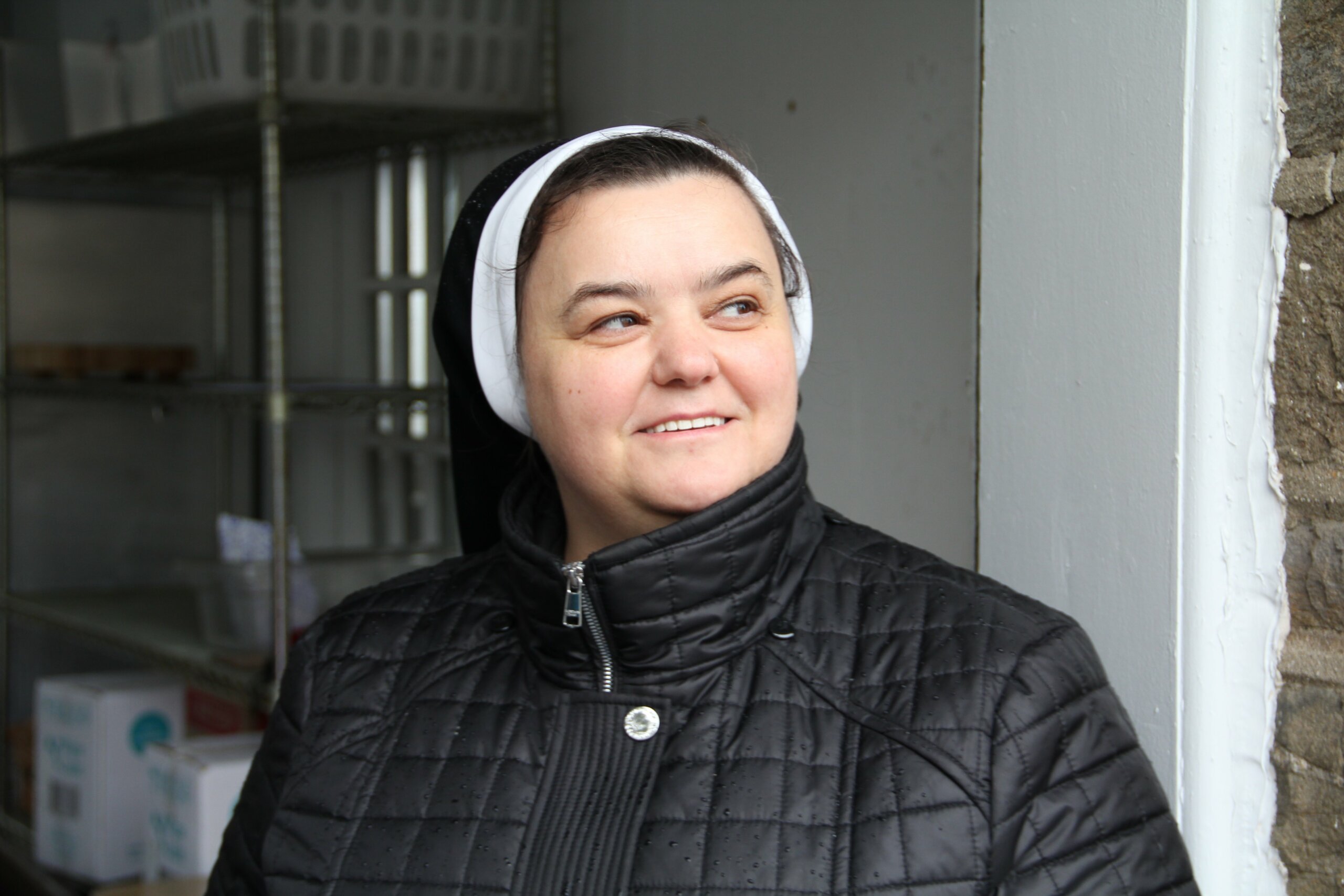
From Ukraine to Philadelphia streets, Basilian sister’s ‘restless love of the poor’ drives her
A Basilian sister from Ukraine is caring for some of Philadelphia’s most vulnerable populations, driven halfway across the globe by what one colleague calls her “restless love of the poor.”
“Whatever we have here, we give out,” Sister Teodora Kopyn told OSV News as she recently distributed boxes of groceries from one of the Philadelphia-area food pantries she operates.
A native of the ancient city of Mukachevo in western Ukraine’s Zakarpattia region, Sister Teodora arrived in the U.S. in 2013 to join her fellow Basilians at their Jesus, Lover of Humanity Province in Jenkintown, Pennsylvania. Unlike many of the other visiting sisters who return to Ukraine after a period of service with the province, Sister Teodora remained in the U.S. — and rolled up her sleeves, determined to help as many Philadelphia-area residents as she could.
“She was the exception by staying, and she said people told her she was crazy,” said Sean McLaughlin, safe environment coordinator and development director for the Ukrainian Catholic Archeparchy of Philadelphia, and former director of the Basilian Spirituality Center, operated by the Jesus, Lover of Humanity Province on its Jenkintown campus.
Now 42, Sister Teodora has spent the past decade seeking out those in need. Among the outreaches she manages are a food pantry serving some 100 households per week and a relief program that provides clothing and other essentials to Ukrainian refugees, as well as migrants from Estonia, Kazakhstan, Uzbekistan and other nations.
But what Sister Teodora calls her “best project” is her ministry to those on the streets of Philadelphia’s Kensington neighborhood, the city’s “ground zero” for opioid addiction, poverty and homelessness.
An estimated 300-600 individuals typically live on Kensington’s streets, clustered in tent encampments along the gritty blocks where several scenes in the “Rocky” movies were filmed decades ago.
Long plagued by open air drug use, overdoses and trafficking, Kensington is now experiencing a spike in overdoses from xylazine, a veterinary tranquilizer that has been found in 90% of Philadelphia’s street opioids. Resistant to the opioid-reversing naloxone, xylanzine — “tranq” as it is popularly known — restricts blood flow through skin tissue, leaving users covered in ulcerated, necrotic wounds.
With a steady supply of plastic “blessing bags” filled with toiletries and food, Sister Teodora, accompanied by other volunteers, walks among Kensington’s wounded. She told OSV News she finds healing in the encounter.
“Being with those people, you know you’re not just giving to them; you’re receiving a lot from them — peace, blessings, smiles,” she said.
She admitted the sight of so much suffering, with “all the bodies covered with wounds,” is “a painful picture.”
But Sister Teodora said above all she sees “human beings.”
“They’re not addicts; they’re people,” she said.
Although “they don’t have anything,” she said, many of those on Kensington’s streets demonstrate a surprising and profound sense of gratitude.
“They don’t complain,” said Sister Teodora. “They always say, ‘Oh, thank you — God bless you.’
She recalled one man asking her to make sure she did not overlook a fellow homeless person, deep in a narcotic stupor, on her rounds.
“The man was saying, ‘Please give something to him, because he will wake up and he will eat that for supper,'” said Sister Teodora.
Some of her fellow volunteers confess they have “a really hard time” carrying out their ministry in Kensington, and Sister Teodora said she offers them the reassurance that strengthens her.
“I see the suffering Christ,” she said. “Especially in their eyes and in their grateful hearts.”
—Gina Christian, OSV News

